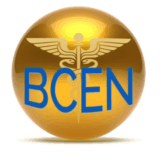Bruce’s Work with ESL and Internationally Trained Students and Caregivers
My interests in education and in health care communication are apparently hereditary. In the 1930s, my grandmother, Genoveva Guerra, and her offspring compelled the desegregation of a previously all-White school in Texas’s Rio Grande Valley. My mother was one of the first Latina graduates of the Duke University School of Nursing. Two of her brothers became physicians; a third brother was the first director of federal ESL-bilingual education.
My first “job,” at age 5, was to tutor our German neighbors’ 3-year-old daughter in English. Many years later, in preparing to teach medical English in Vietnamese nursing schools, I completed an MA TESOL* with a specialization in medical English. Before reaching Viet Nam, however, I met and married my wife, who was then a Vietnamese international student in San Francisco. From my observation of the many challenges that my wife faced as an ESL student, I came to deeply admire those of you who have engaged in health care–health science programs as non-native-English speakers. In addition, I’m grateful for the unique contributions that you are (or will be) making toward resolving the health literacy, health disparity, and patient safety barriers that loom large in America today.**
Inspired by your dedication to the well-being of our community, I will do everything in my power as your scientific writing editor to promote your professional and academic success.
* Teaching English to Speakers of Other Languages
** Several years ago, I also developed and taught English for Medical Purposes courses for internationally trained caregivers. In addition, I served as the director of a one-year pilot program that assisted internationally trained nurses and physicians to gain licensure in northern California. My training and these experiences have been invaluable in sensitizing me to the issues that confront non-native-English speaking nursing students, professors, and bedside nurses.
